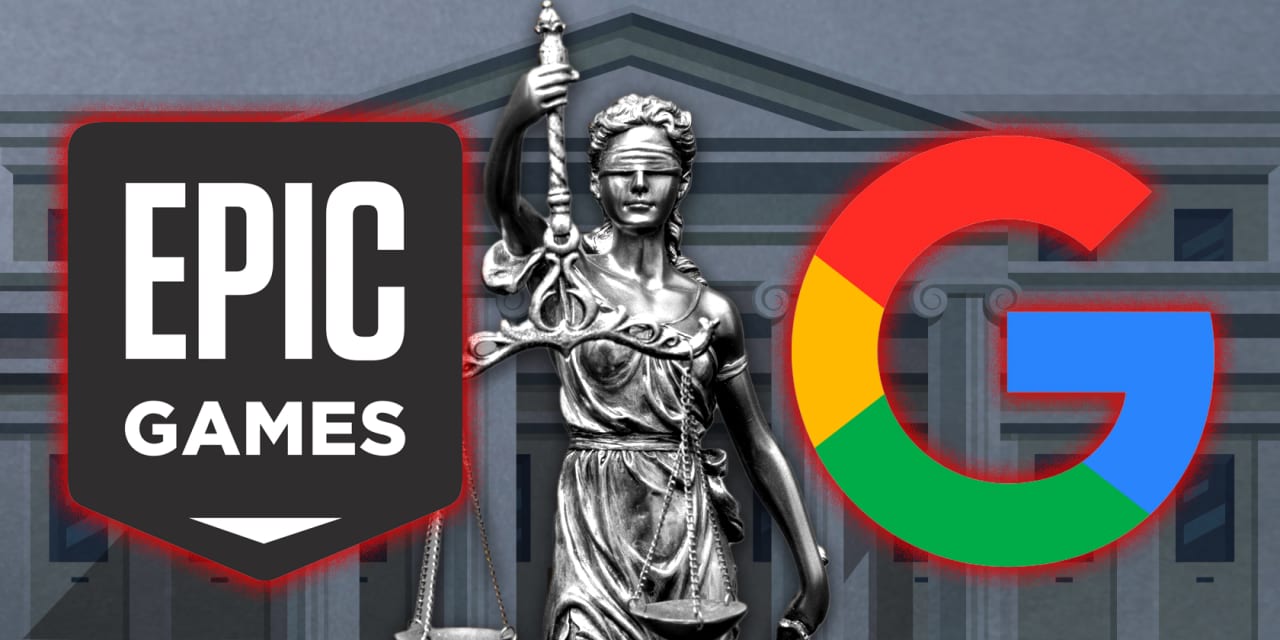An epic court win by the maker of Fortnite could upend the multibillion-dollar app-store economy. It almost assuredly will set into motion a legal skirmish that will ultimately land in the U.S. Supreme Court.
Epic Games Inc.’s triumphant verdict in its high-profile antitrust trial with Alphabet Inc.’s
GOOGL,
GOOG,
Google, in which Epic claimed the Play app store operated as an illegal monopoly, is reverberating throughout the software industry. For years, developers led by Epic have alleged they were at the mercy of Google and Apple Inc.
AAPL,
both of which commanded commission fees of up to 30% on digital goods and services sold exclusively through their online stores.
The jury’s verdict late Monday “proves that Google’s app store practices are illegal and they abuse their monopoly to extract exorbitant fees, stifle competition and reduce innovation,” Epic Games said in a blog post late Monday.
Legal experts said the decision, reached after only a few hours by a nine-person jury in San Francisco, will disrupt increasingly profitable business segments for Google, Apple, Sony Group Corp.
SONY,
Samsung Electronics Co.
005930,
and others.
At the very least, the verdict proves that the definition of a market is shifting through technology advances, according to Michael Santoro, an ethics professor at the Leavey School of Business at Santa Clara University.
“The jury thought the relevant market was the Android app-distribution market and not the app-distribution market that includes Apple,” Santoro said in an interview.
More broadly, the decision “will definitely change some practices, but redefine app stores? I don’t think so,” tech attorney Abiel Garcia said in an interview.
One outcome would force app stores to work more with one another to establish consistent terms of agreement with app developers, down to commission fees and other rules, Garcia said. Meanwhile, developers are trying to figure out what opens up for them, he added.
Read more: Epic Games is the latest to take on Google in court over antitrust charges
U.S. District Judge James Donato will decide what remedies Epic will be awarded in January. Epic did not seek monetary damages.
Google plans to appeal, setting into motion a potentially years-long conflagration that will end up in the nation’s highest court.
“The trial made clear that we compete fiercely with Apple and its App Store, as well as app stores on Android devices and gaming consoles,” Wilson White, vice president of government affairs and public policy for Google, said in a statement. “We will continue to defend the Android business model and remain deeply committed to our users, partners, and the broader Android ecosystem.”
As with Epic’s historic lawsuit with Apple, the Google case is likely to trudge through the appeals-court system. “This is one of a series of cases wending their way through the appeals process,” Santoro said.
When Epic went to court with Apple in 2020, challenging the iPhone maker’s stranglehold on the App Store and a commission fee of up to 30% for digital goods and services sold through the App Store, Apple largely prevailed.
Apple won nine out of 10 claims in the Epic suit in late 2021. However, federal judge Yvonne Gonzalez Rogers did rule against Apple on its anti-steering policies under the California Unfair Competition Law and prohibited Apple from barring developers from informing users of other payment systems within apps.
Both companies asked the U.S. Supreme Court to review the ruling.
As Google prepares its appeal of the Epic ruling, it is also bracing for the conclusion of the Justice Department’s antitrust case against Google’s dominant search-engine business.
The government’s case has homed in on what Google did to maintain its search and search-ads monopolies, and on how those allegedly illegal practices harmed consumers and advertisers.
The most egregious tactic is that Google spent billions of dollars to maintain its search-engine monopoly on mobile and web browsers, including $26.3 billion in 2021, according to a Justice Department exhibit. Justice Department lawyers said Google paid Apple and other tech platforms more than $10 billion a year.
Read the full article here




